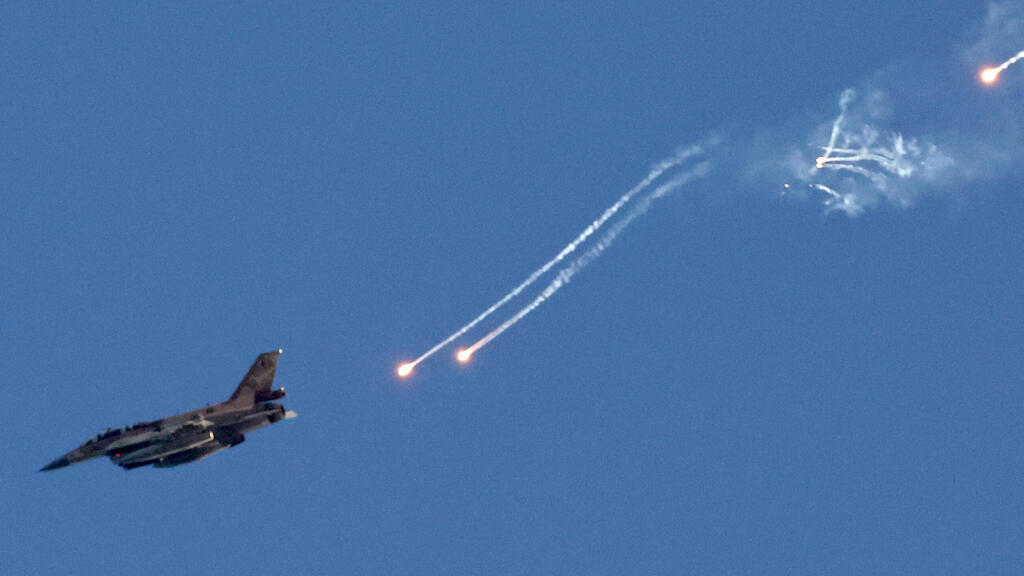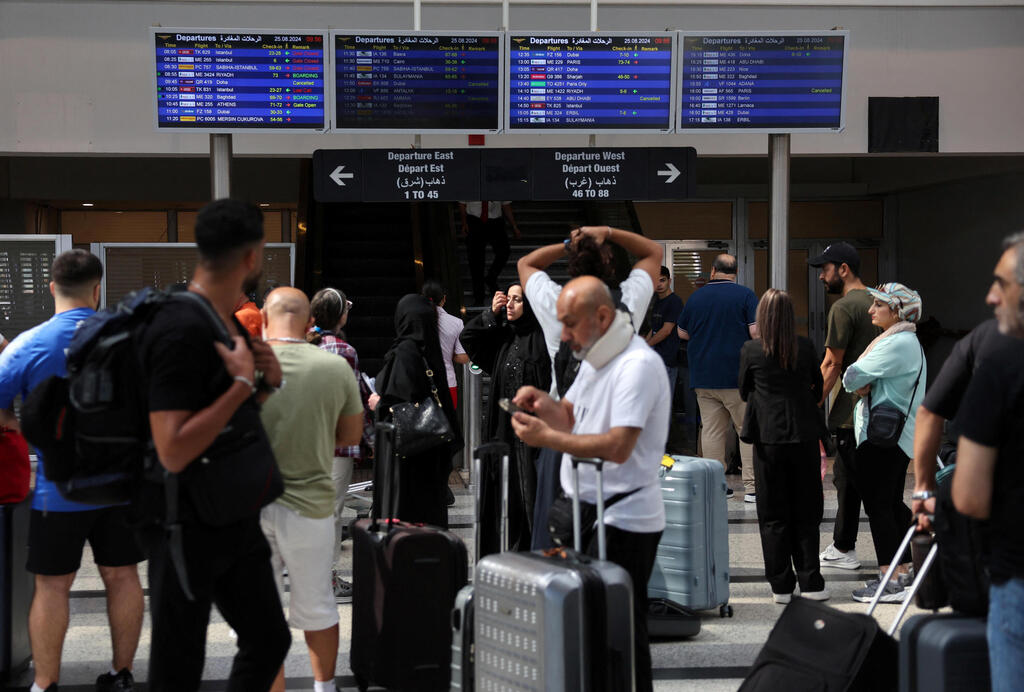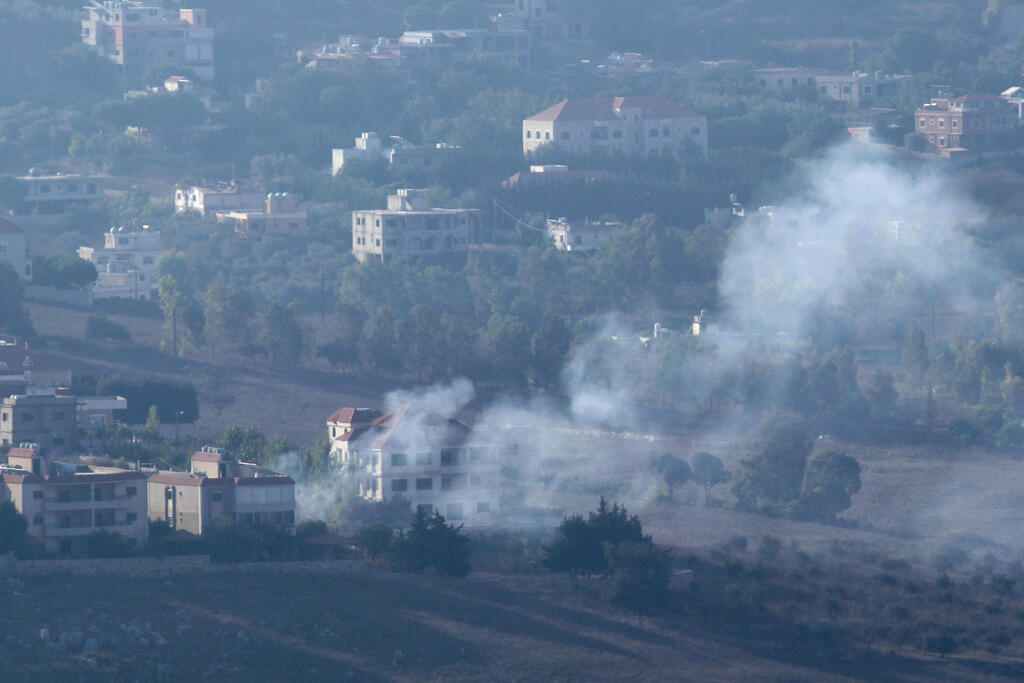Getting your Trinity Audio player ready...
In the pre-dawn hours on Sunday, the Israeli Air Force launched a sweeping preemptive strike that sent 100 fighter jets soaring over southern Lebanon, obliterating thousands of Hezbollah launch sites. The operation, as expected, incited panic among many Lebanese. A resident of Zibqin, a small village just four miles from the Israeli border, told Reuters he was awakened by the roar of jets and the thunderous blasts that followed. "It felt like the apocalypse," he said.
The Not everyone was perturbed; on the shores of Tyre, beachgoers continued their seaside revelry, gazing at the large mushroom cloud rising from one of the strikes.
The IDF and reports from Lebanese media outlets said most of the strikes—in some 40 different locations in southern Lebanon—were targeted mainly at open areas, with only a few impacting targets within villages and towns. Many of these locations have endured more severe damage than the northern Israeli communities over the past 11 months of conflict.
IDF strikes persisted throughout the morning, and Lebanon reported three casualties: one, a militant from the Shiite Amal movement, Hezbollah's ally, was killed in a vehicle bombing in Al-Khiam. Two others perished in a strike in At-Tiri, one reportedly a Syrian civilian.
This current escalation marks the most significant on the northern front to date, amplifying Lebanon's fears of a full-scale war with Israel—an ordeal that promises widespread destruction for a nation already teetering on the brink of economic collapse.
Despite the preemptive assault, Hezbollah declared it had "finished for today" its promised retaliation for the assassination of senior member Fuad Shukr in late July. Yet, its leader Hassan Nasrallah said this was merely the "first phase" of their vengeance, keeping tensions high in Israel and anxiety palpable in Lebanon.
Lebanese Prime Minister Najib Mikati convened an emergency ministerial meeting in Beirut and said that he was engaged in efforts to "halt escalations." Against the backdrop of a summit convening on Sunday in Cairo, Mikati said the pathway to de-escalation lies in achieving a ceasefire in Gaza—a ceasefire Hezbollah's Secretary-General Hassan Nasrallah insists is the sole action that will halt attacks on Israel. "First, the attacks in Gaza must stop, and Resolution 1701 must be implemented. Lebanon supports international efforts that can bring about a Gaza ceasefire," declared Mikati.
3 View gallery


IDF fighter jets drop flares near the Lebanon-Israel border
(Photo: Atef Safadi / AFP)
The fear of escalation not only disrupted flights in Israel but also in Lebanon—Al Arabiya reported numerous flight cancellations to Beirut. A Lebanese source informed the Saudi network that planes scheduled to land at Beirut's international airport diverted to Amman, Jordan's capital. However, the Lebanese aviation authority claimed only some flights were canceled and emphasized that operations at Rafic Hariri Airport continue as usual. Among the foreign airlines canceling flights to Beirut (and also to Ben Gurion Airport) is Air France, which announced suspensions until at least Monday. Royal Jordanian and Etihad also canceled flights to Beirut.
The flight cancellations disrupted the plans of many passengers who arrived at the airport this morning—a port previously reported to house substantial Hezbollah weaponry—and some expressed a pressing desire to leave Lebanon as swiftly as possible. "I just want to get out of here any way I can," Renee Saad, a Lebanese resident of New Jersey whose flight to the U.S. via Amman was canceled, told Reuters.
Stranded Lebanese passengers
(Video: Reuters)
In an interview conducted while she sat on the airport floor, the woman added that she had to purchase another ticket to Jordan: "We are sitting here and waiting, it's chaos. And that's if the plane takes off. We don't know if it will definitely take off to Jordan, and we'll have to see if we can find a place to the U.S. from there. I might have to stay there for a week. I don't know how long I need to be there, but what's important is to get out of here."
Reuters also interviewed a young Lebanese student studying at a university in Paris, who expressed concern that due to his flight being canceled, he would be late for his exams at the end of his vacation. "Staying here is not an option with this situation," said 21-year-old Hadi Abu Rashed, who came to Lebanon for a vacation. "We can't find a way back to Paris, all flights are full. We're now on a waiting list and waiting to see if a spot becomes available. So we're a bit stressed."
3 View gallery


Flights canceled at the Rafic Hariri International Airport in Beirut
(Photo: Mohamed Azakir / Reuters)
Amid fears of escalation, there was also a report in Lebanon of a demand to activate the René Mouawad Qlayaat Airport in the country's north, to prevent a "siege" in Lebanon in the event of war. The airport is located in the Akkar region in northern Lebanon, a few miles from the border with Syria, and according to the report on Sky News in Arabic, those supporting its opening emphasize it would not compete with Beirut's port but rather complement it. Khalil Al-Halu, a former member of the Lebanese army, said, "Lebanon needs a second airport. There is a need to equip this airport today with reception and departure halls and organize it to operate it as quickly as possible." The Christian party "The Lebanese Forces" accused, according to the report, that "Hezbollah has no interest in having another airport in Lebanon because it wants to maintain a monopoly at all borders."






